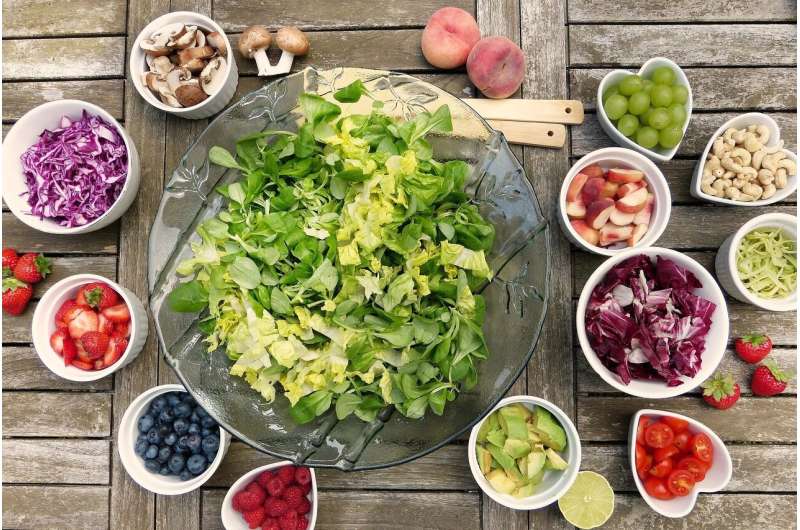Polyphenol-rich diets improve leaky gut syndrome in the elderly

The increase of intestinal permeability is associated with factors such as aging, food allergies and intolerances and unhealthy diets. This alteration causes a reduction of the gut integrity barrier that triggers the transit of potentially-toxic substances for the blood, and is related to the development of chronic diseases such as diabetes, cardiovascular diseases and even Alzheimer's.
A polyphenol-rich diet improves the intestinal permeability in old people, according to an article published in the journal Clinical Nutrition. The study is led by Cristina Andrés-Lacueva, profesor at the Faculty of Pharmacy and Food Sciences and head of the Research Group of Biomarkers and Nutritional Metabolomics of Food of the UB and the Biomedical Research Center of Fragility and Healthy Aging (CIBERFES), also part of the Catalan Food Innovation Network (XIA).
This European study, conducted within the framework of the Joint Programming Initiative—A Healthy Diet for a Healthy Life (JPI HDHL), was carried out in people aged over sixty who underwent a polyphenol-rich diet for eight weeks. The results show that including up to three daily portions of apple, cocoa, dark chocolate, green tea, cranberries, oranges or pomegranate juice, improves intestinal permeability when making specific changes in the intestinal microbiota.
According to the experts Gregorio Perón and Tomás Meroño (UB-INSA and CIBERFES), "we studied the existing relationship between the metabolism of the elements of the diet, microbiota and intestinal permeability, by analyzing the changes that are caused by a polyphenol-rich diet in the microbiota of the participants in our study and testing the resulting improvement of their gut barrier."
The analysis of plasmatic and fecal samples showed an increase of the serum metabolome related to the polyphenol intake. "For instance, theobromine and methylxanthine ─ derived from cocoa and green tea─ are positively correlated with butyrate-producing bacteria (a fatty acid in the intestinal flora), and inversely with zonulin, a protein related to the intestinal permeability," note the authors.
According to Professor Cristina Andrés-Lacueva, "the study of the relationship between intestinal permeability, microbiota composition and food metabolism has to be the base for establishing customized diets for every life stage, especially for the elderly."
Changes in food and lifestyle for a healthy aging
In short, changes in lifestyle and food are decisive as a prevention strategy for intestinal permeability associated to aging and chronic diseases. "A higher intake of fruits, vegetables and foods such as those described in this paper provide fiber and polyphenols that could help counterbalance the damaging of permeability due to aging," notes Andrés-Lacueva.
More information: Gregorio Peron et al, Crosstalk among intestinal barrier, gut microbiota and serum metabolome after a polyphenol-rich diet in older subjects with "leaky gut": The MaPLE trial, Clinical Nutrition (2021). DOI: 10.1016/j.clnu.2021.08.027


















